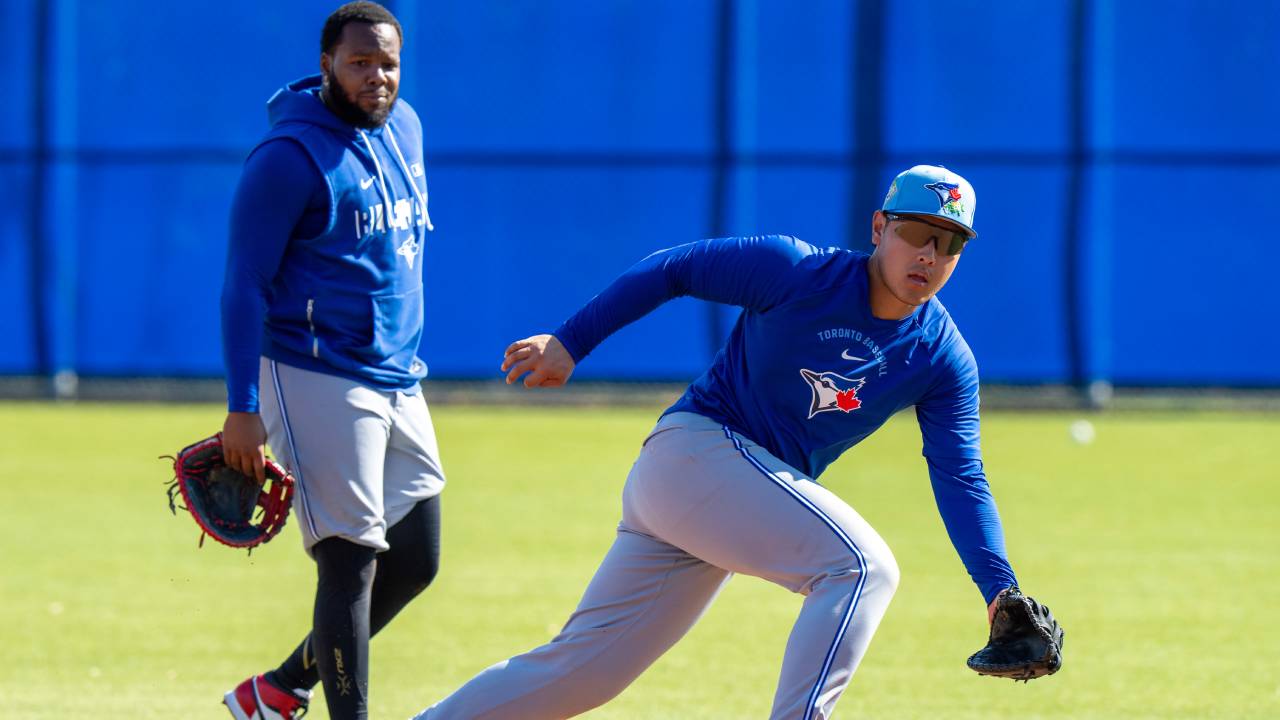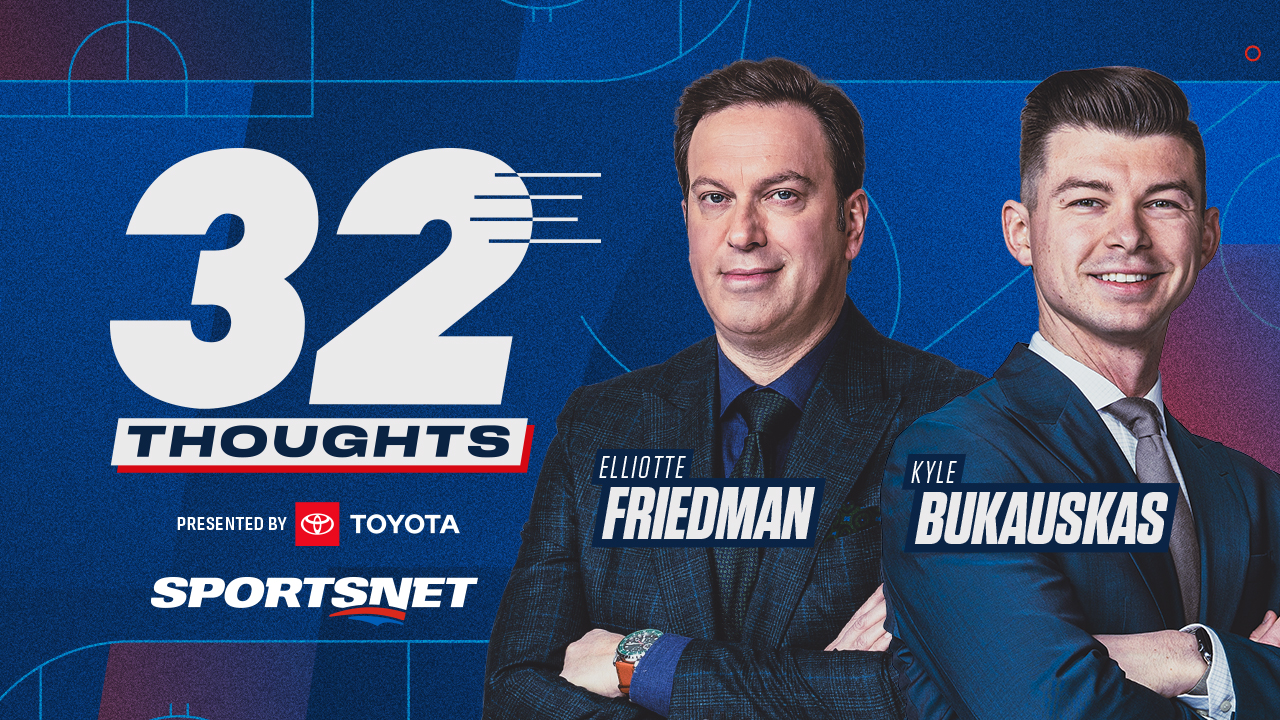
TORONTO – The holiday trade freeze is a fine time to ponder what happens after the thaw.
And when we consider the Toronto Maple Leafs’ singular set of circumstances dropping into 2023 and the landscape around them, increasingly we believe this is year to go all-in.
For real, for real.
Absolutely, it was aggressive for GM Kyle Dubas to deal a first-round pick for (an unfortunately injured) Nick Foligno in 2021. And it was no small decision to package a pair of second-rounders and a third-rounder for rentals Mark Giordano and Colin Blackwell in 2022.
But considering the way his team is performing, their Group of Death division, the number of elite pieces set to hit market, and the tornado of mounting pressures swirling around the franchise — no extension for the GM; the arguable greatest Maple Leaf of all-time racing toward a contract-extension eligibility; six straight years of first-round failure — this feels like the trade deadline to be bold.
Very bold.
It’s no secret the Maple Leafs have loosely blueprinted themselves after the Tampa Bay Lightning’s current core and philosophy. And a healthy mutual respect exists between the front offices of the Atlantic Division powers.
The path that the Maple Leafs have thus far resisted, however, is to spend as extravagantly as the Bolts did to reach the mountaintop.
In 2020, when Julien BriseBois’s Lightning won their first Stanley Cup, the GM spent two first-round picks to acquire key role players Barclay Goodrow and Blake Coleman.
In 2021, en route to a repeat boat parade, BriseBois shelled out another first-rounder to rent a few months of rugged defenceman David Savard.
In 2022, BriseBois gave up on promising ’21 Cup contributor Mathieu Joseph plus a pick to Ottawa in effort to secure postseason difference-maker Nick Paul, then a pending UFA.
Those huge swings pushed Tampa to a third straight final and two wins shy of dynasty status.
“We look at these character guys that we’ve tried to bring in on contracts that fit for us. That’s probably the biggest kicker—trying to find those guys. We’ve probably been looked at (skeptically) for the price we’ve given up for some players,” Lightning coach Jon Cooper says.
“But Brandon Hagel is a top-line player for us with multiple years on his contract. You have to pay for those. If it costs you two first-round picks, it costs you two first-round picks. But he’s also a big part of us going to a final and us being in a playoff spot right now. So, I think our GM has done a heckuva job of identifying what we need as a group, then him going out and finding it — and not being afraid to pay a price for it.”
Which brings us back to Dubas, who was either (a) hesitant or (b) forbidden from sacrificing a blue-chip prospect or a first-rounder last deadline.
This deadline, March 3, should be different in Toronto. Splashier.
Fortune favours the bold, and all signs point toward a calculated risk:
• The Maple Leafs should actually have space in a cap world where so few contenders do.
With legitimate concern over Jake Muzzin’s future, there is a chance his $5.625 million hit remains on long-term injured reserve until the postseason, if not beyond.
• The market should be rich with pieces that fit the Maple Leafs’ needs, and — with the help of some retained salary in some cases — why wouldn’t these skaters approve a trade to such a talented, disciplined contender?
There is a gaping hole at second-line left wing that could either be filled with a natural winger or by adding another centre — can’t have too many of those — and shifting either John Tavares or the new centre to the flank.
Up front, difference-makers like Bo Horvat, Ryan O’Reilly, and Auston Matthews’ boyhood hero, Patrick Kane might all switch uniforms. Jonathan Toews, Tyler Bertuzzi, Vladimir Tarasenko, Timo Meier, Ivan Barbashev, and Gustav Nyquist are also intriguing targets.
Blue line options start with the priciest but most cost-certain option, Jakob Chychrun, but should include skill-first puck-movers like John Klingberg and Shayne Gostisbehere, and stay-at-home butchers like Vladislav Gavrikov and Luke Schenn.
Once another month passes and separation leaks into the standings, executives will have a clearer picture of who’s for sale.
Point is, there will be some high-end shopping to be done.
First-round picks, Nick Robertson, and (gasp) Matthew Knies should all be worth a conversation for the right package.
• The current players deserve a boost.
The Maple Leafs have refashioned themselves as a defensive stalwart, believe it or not, and that’s been amplified in signature home wins over the Bruins and Lightning this season. Two of the most complete and determined 60-minute samples we’ve witnessed from this core.
The Leafs are less reliant on hanging four or five on their foe, or needing their (recently middling) power-play to bail them out.
Toronto ranks second (to Boston) in goals allowed per game (2.39). That’s partially due to improved goaltending, but mostly due to a refreshing five-man commitment to backcheck, stuff lanes, and retrieve pucks.
Think of the relatively low-stress, 18-save victory Matt Murray recorded Tuesday against Tampa.
“We didn’t have the start we wanted to, and I think everyone just made the decision,” says Mark Giordano. “We bought in and started playing harder on the defensive side of the puck, for sure.
“Started taking away speed and time from the opponent. I think that’s really what we’ve done well as a group. And then our goaltending has been really good. When you put all those things together, that’s what results in success.”
• Finally, there is a nagging feeling that Toronto needs something more than Dryden Hunt or Conor Timmins to push them over the top, considering it must survive confident, deep, proven opponents like the Bruins and/or Lightning to go anywhere.
Cooper acknowledges that surviving difficult early rounds has helped pushed his group to the peak.
“It says something about the three organizations that have somehow found a way to be at the top for quite a number of years now. It’s just tough because you know you’re going to face one or two of those teams if you’re fortunate enough to get to the playoffs,” Cooper says.
“I don’t care what anybody says about our playoff series against the Leafs last year. That could’ve gone either way. Fortunately, it went our way.”
William Nylander — one of several Maple Leafs at the top of his game — shrugs over the standings.
“You have to beat those teams anyway if you want to get anywhere. That’s just how it is,” he says. “I’m not too worried about it. You can’t change anything.”
What can be changed, however, is the roster that goes into those battle.







